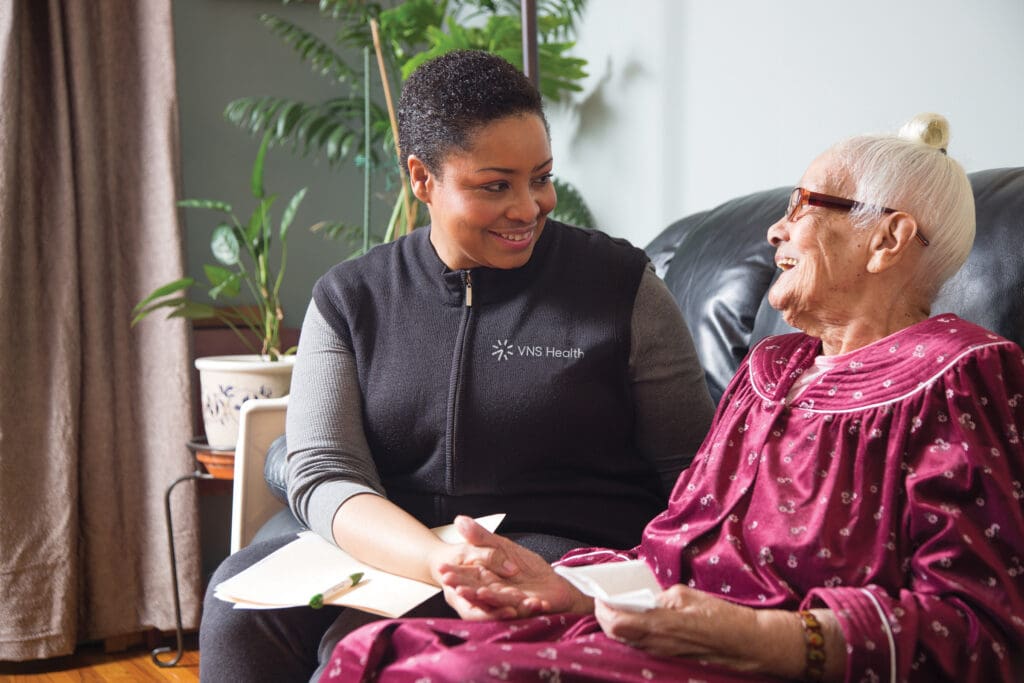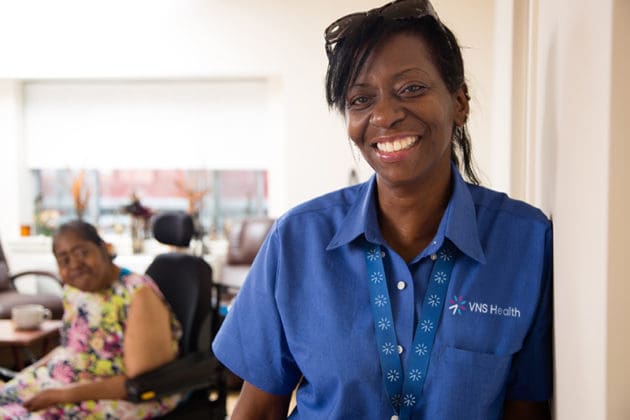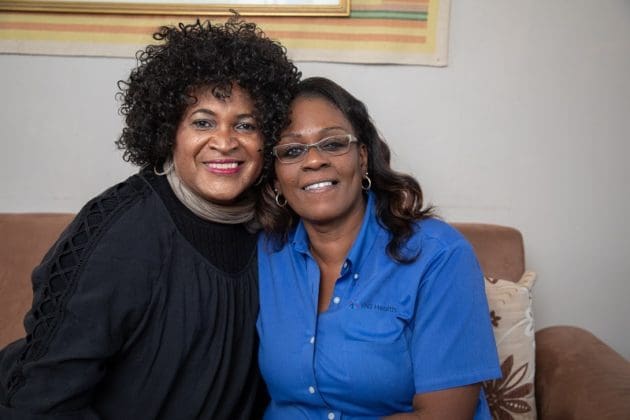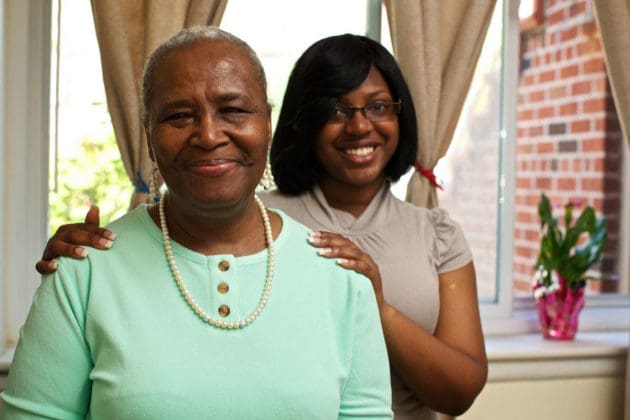
If you are caring for a loved one who has dementia, a time may come when they need more help than you can provide to stay at home safely. That support can include a home health aide for companionship and help with daily tasks.
When choosing a home care health aide for someone with dementia, you want to know that the aide has specialized training, and is compassionate as well as knowledgeable. And it’s important to know that the aide works for an organization or agency that offers proper support and ongoing education. What other specific qualities should you be looking for?
Communication Skills
Communication can be challenging for individuals with dementia. Your loved one might have a hard time asking for what they want or remembering certain information. As their dementia progresses, they might even have trouble with the mouth movements required for speaking. A good home health aide will have strong communication skills. They will use clear and simple language, maintain eye contact, try to maintain two-way conversation, and use nonverbal cues to help your loved one understand and to build a meaningful relationship with them.
It’s also important for a home health aide to communicate with you and your family. You can’t be with your loved one 24/7, and home care should make you feel more confident in your loved one’s health and safety. Talk to your loved one’s home health aide about the best way to reach you and what kinds of updates you might like about your loved one.
Caring for a loved one with Alzheimer’s disease or another type of dementia is tough. VNS Health offers specialized home care services to help your loved one feel safe in the comfort of their home.
Empathy and Compassion
A home health aide with training in caring for someone with dementia knows how important it is to connect with your loved one, taking the time to really understand their feelings and experiences. You want your loved one’s home health aide to be able to put themselves in your loved one’s shoes, imagining the challenges and frustrations they may face.
An empathetic home health aide actively listens to the person with dementia, giving them the opportunity to express their emotions, fears, and desires. The aide creates a safe space where the person can feel comfortable sharing their thoughts and concerns.
Patience
No matter what your loved one’s needs are, you want their home health aide to be patient — but this is especially true if your loved one has dementia. When your loved one is struggling with ordinary tasks, you want to be confident that their aide will know when to encourage and when to step in. An aide needs to remain calm and understanding, allowing extra time for tasks and communication while reassuring and supporting your loved one.
A good home health aide knows that your loved one’s behaviors are a result of their condition and are not intentional. This knowledge allows the aide to respond appropriately. Patience also empowers aides to communicate effectively and build meaningful connections with a person who has dementia. A patient home health aide takes the time to listen, observe nonverbal cues, and respond sensitively, so they can better meet your loved one’s needs.
An Observant Personality
Being observant is a critical characteristic of a good home health aide for someone with dementia. By watching and noticing your loved one’s behavior, body language, and other subtle cues, an aide can assess their needs, moods, and emotions.
A good home health aide will be able to detect signs of discomfort, agitation, or confusion in your loved one and take steps to address these issues promptly. Observant home health aides also anticipate potential triggers or challenges that may arise throughout the day, allowing them to create a supportive environment.
By closely monitoring changes in your loved one’s condition, memory, or physical abilities, a home health aide can be an invaluable part of your loved one’s care team. They inform the nurse who’s managing your loved one’s care of any issues that arise.
Knowledge About Dementia
A caregiver who is well-informed about dementia and its symptoms can provide better care. Understanding the stages of dementia, its impact on cognitive and physical abilities, and appropriate coping strategies can help home health aides anticipate and address the needs of the person with dementia more effectively.
Being knowledgeable about dementia also means that your loved one’s aide can provide you with the resources and education you need to care for your loved one. They can help you anticipate changes, and they’re involved enough to recognize your loved one’s behaviors — like sundowning — and help you learn more about how to respond and reduce potential triggers. A good home health aide can also share referrals to relevant activities in your community.
A Good Fit
A simple list can’t include every single quality of a good home health aide. You may not be able to put your finger on a specific quality that makes someone the right person to work with your loved one.
Although a good fit may be more of a feeling than a specific quality, finding a fit for your loved one is important. What makes a good fit might be different for everyone — but the right person can make all the difference.


